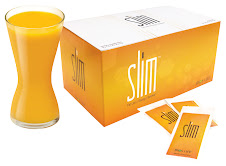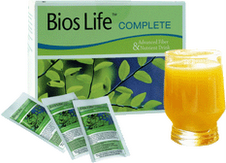Several developments have emerged in the evolving world of cholesterol research. Here's what you need to know:
Spotlight on HDL & LDL
Produced by our bodies, and absorbed from the food we eat, cholesterol is a waxy, fat-like substance that's vital for our brain function, hormone production, cellular activity -- every aspect of life.
When it comes to heart health, cholesterol is a double-edged sword. Most of us know by now that there are two main cholesterol carriers with very different roles. Low-density lipoproteins (LDL) transport cholesterol to the body's tissues and arteries. At high levels, LDL leads to plaque buildup in the arteries; this can lead to a sudden blockage or narrowing in an artery that may slow or stop blood flow to the heart (hence LDL's reputation as "bad" cholesterol).
High-density lipoproteins (HDL), which carry cholesterol back to the liver to be removed from the body, protect against heart disease (and are thus called "good" cholesterol). "It's kind of the yin and the yang of atherosclerosis," says Superko. "Cholesterol is always being deposited in the artery and always being taken out."
Despite the fact that HDL's importance has been known for two decades, it's still upstaged by "bad" cholesterol. This isn't surprising, says Superko, since drugs to lower LDL are effective, and they bring in upwards of $30 billion to pharmaceutical companies each year -- creating a large incentive for further research and development, not to mention the ad campaigns.
Drugs for raising HDL, on the other hand, have largely proven unsuccessful; clinical trials of one such drug, torcetrapib, were halted last year because it increased the risk of death.
Whereas until now the majority of data has revolved around LDL, that's changing, says Dr. Elsa-Grace Giardina, a cardiologist and director of the Center for Women's Health at Columbia University. "Recently we've seen that there are populations who have low 'good' cholesterol, and if you raise the good cholesterol in that population, you can actually make them live longer." Every 1-mg increase in HDL appears to correlate with a 3 percent drop in risk of heart disease. Conversely, every 1-mg decrease in LDL, drops your heart disease risk by 2 percent.
The Bottom Line
Both LDL and HDL are critically important for heart health. Your LDL-to-HDL ratio should be about 3.5 to 1, ideally, with an HDL level above 60 mg.
And lifestyle is essential to both levels. Although dietary changes can help lower LDL, exercise and maintaining a healthy weight are key for raising HDL. In general, women tend to have higher HDL numbers than men, but postmenopausal women need to stay especially vigilant. "After menopause, good cholesterol decreases," says Giardina. If you smoke, you can raise your HDL significantly just by quitting.
Rather than another prescription, the best pill for boosting HDL may be a vitamin. "Niacin (vitamin B3) is the most effective treatment at raising HDL," says Dr. Stephen Devries, preventive cardiologist at the Center for Integrative Medicine at Northwestern Memorial Hospital. Studies show that taking large doses (1 to 2 grams) of niacin daily can raise HDL by up to 30 percent. Because of potential side effects -- flushing, in which your skin turns red and you feel very warm, and liver problems -- it's essential to work closely with a doctor.
*** end of article October 2007......see footnote...
Bioslife is the only safe, patented and clinically proven health drink to lower your LDL 31% and raise your HDL 29% within 8 weeks. Take the 90 day challenge and try Bioslife Risk Free.
Visit my eBay store to clear our your arteries, and keep heart attacks and strokes far away!
Saturday, October 20, 2007
The latest spotlight on HDL and what you need to know
Subscribe to:
Post Comments (Atom)



No comments:
Post a Comment